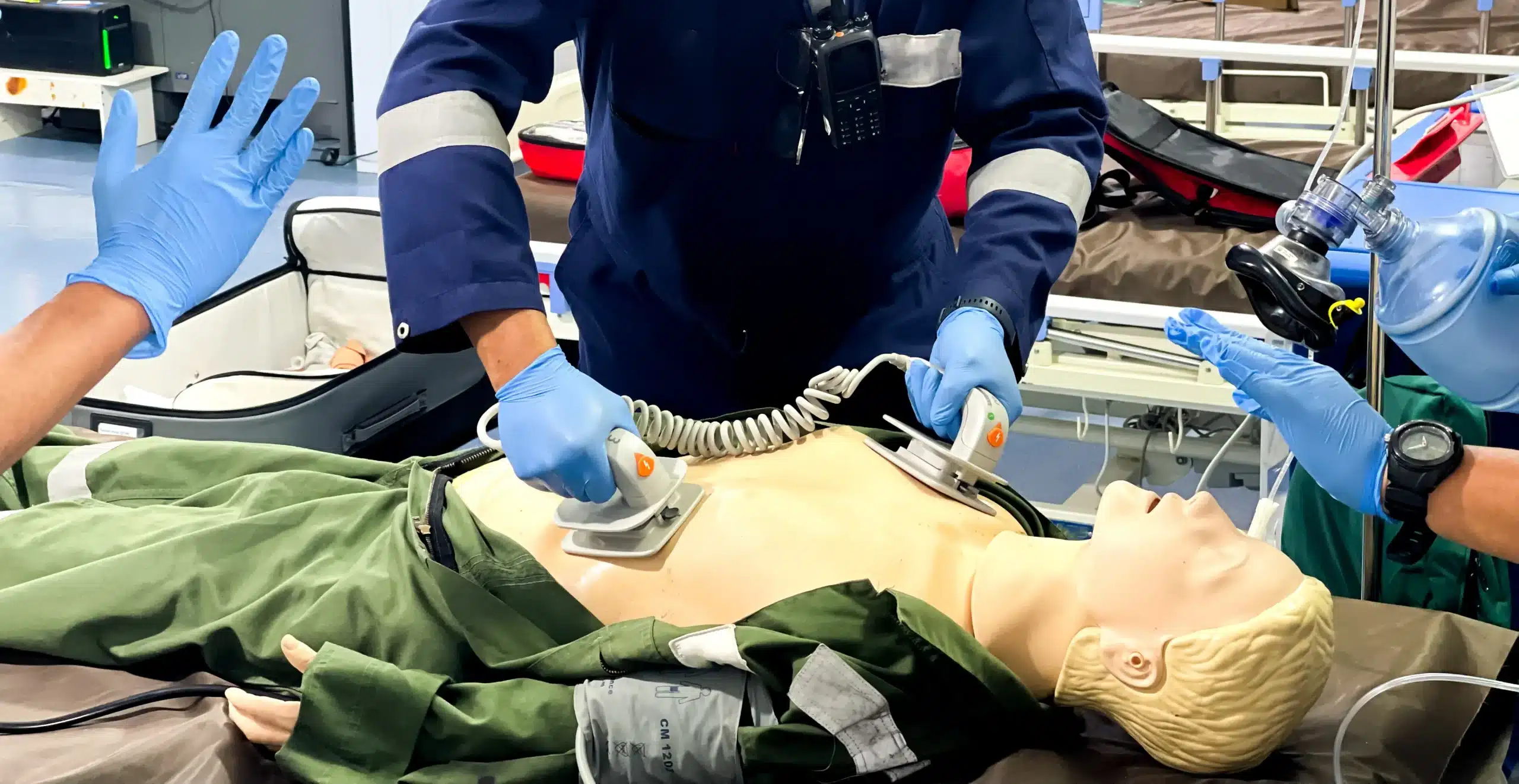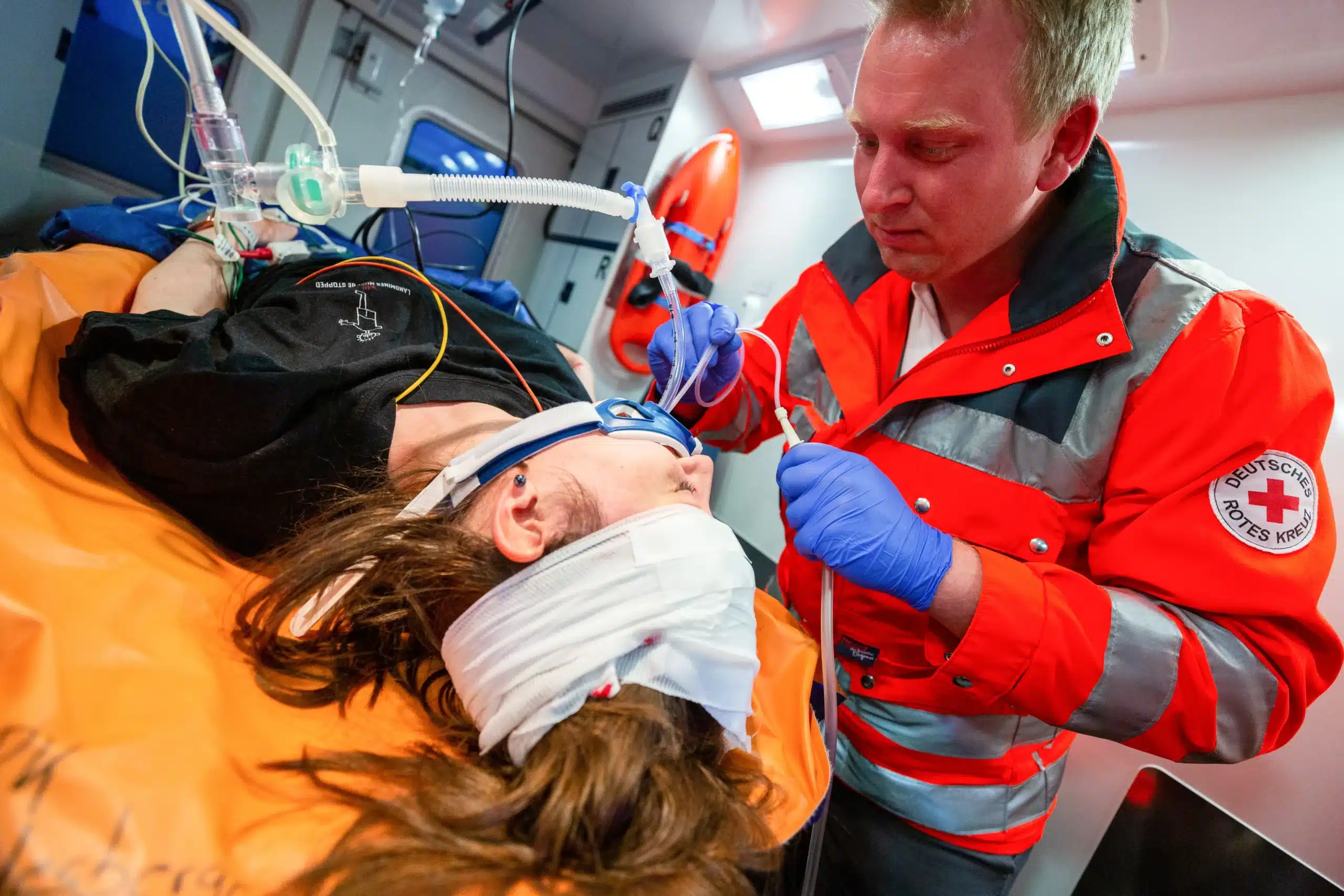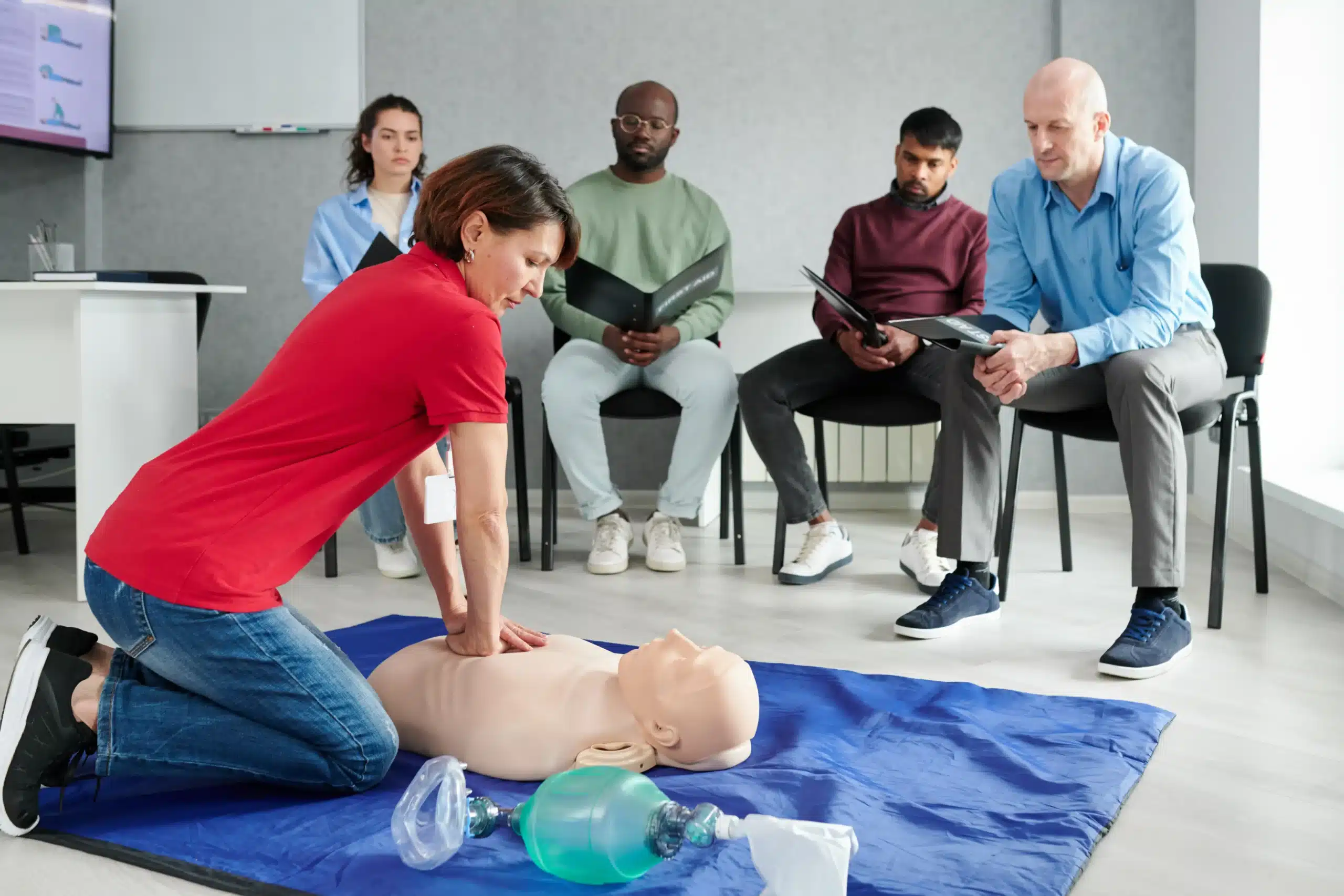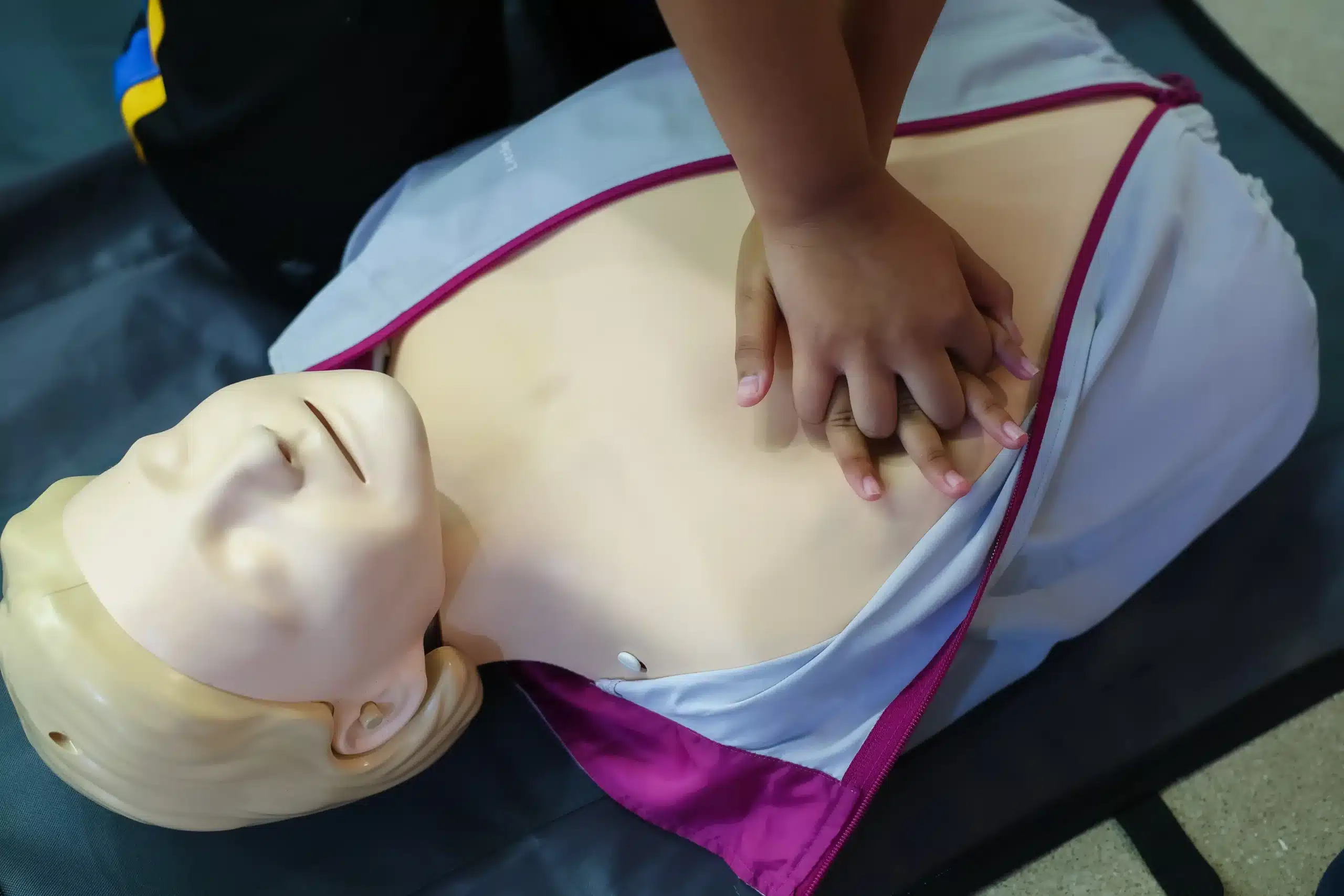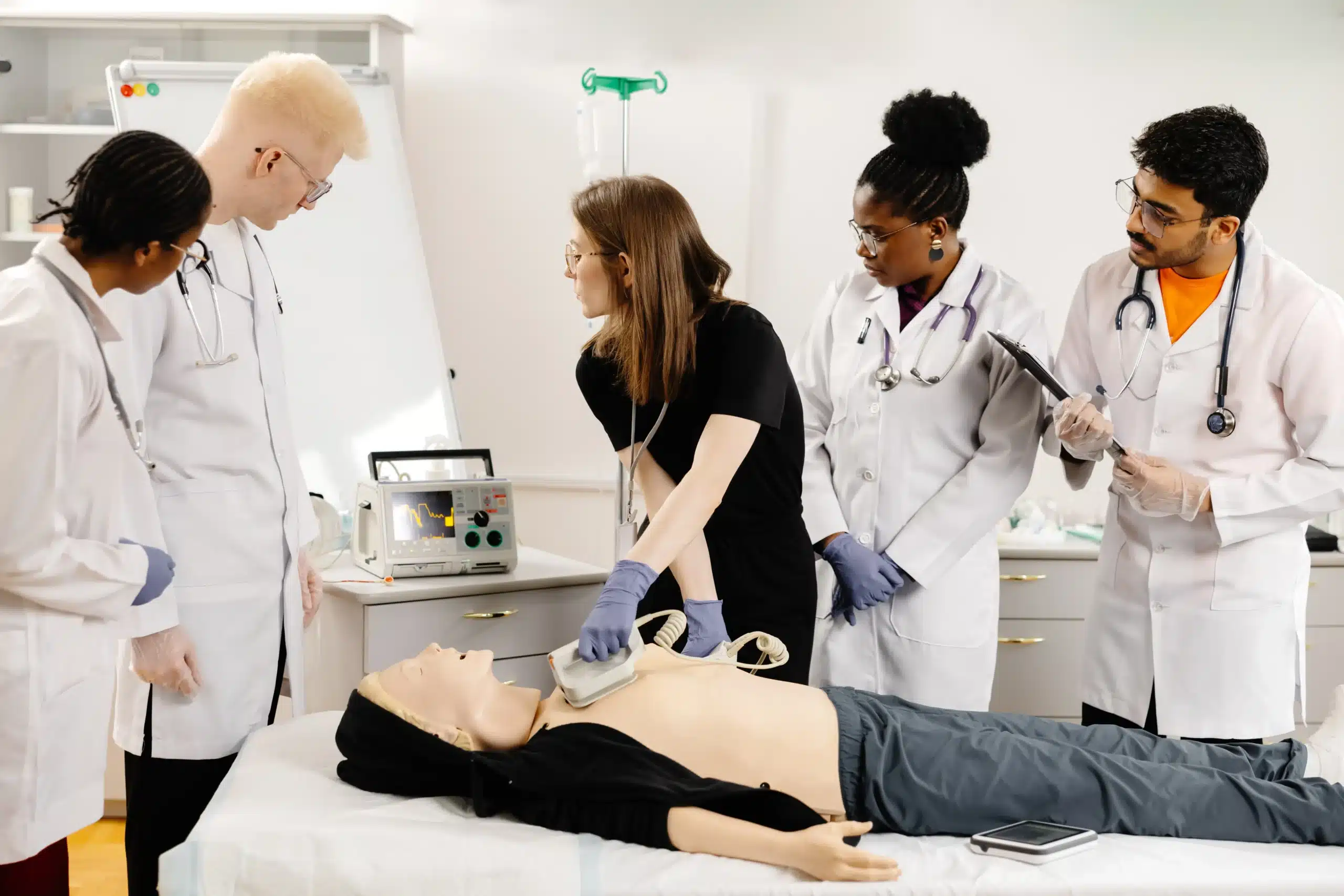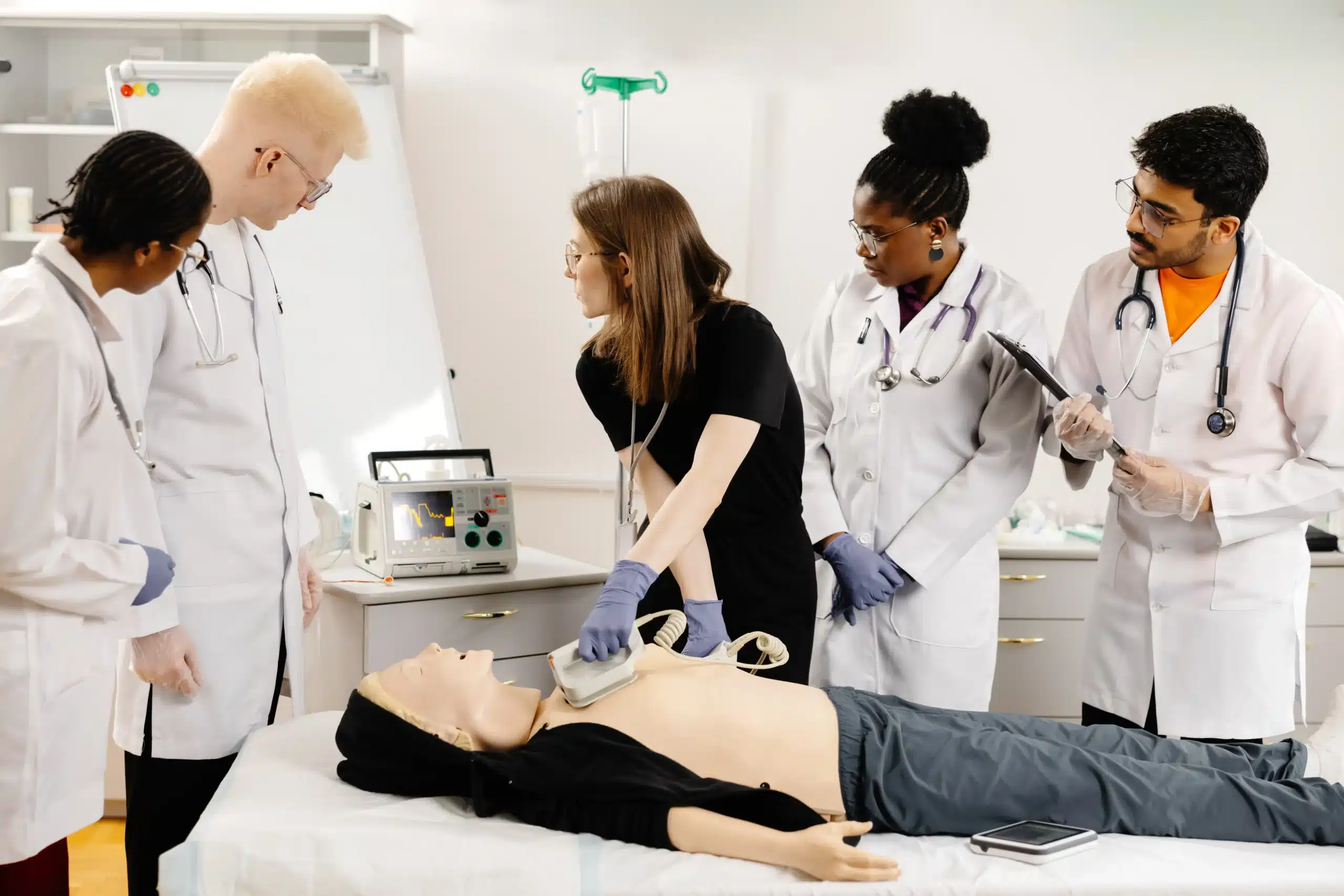Living in Fairfield means being part of a community that values the safety and well-being of its youngest members. One of the most effective ways to contribute to that safety net is by becoming trained in pediatric CPR and first-aid in Fairfield. These skills empower you to respond confidently to emergencies involving infants and children, providing immediate care that can significantly impact their outcome. This comprehensive guide will walk you through the essential aspects of pediatric CPR and first-aid in Fairfield, from understanding its importance to finding the right training program and maintaining your certification. We’ll explore the various training providers in Fairfield, discuss the different course formats, and provide tips on preparing for your training.
Key Takeaways
- Be prepared for emergencies by learning pediatric CPR and first aid. These skills empower you to confidently respond to accidents and illnesses, creating a safer environment for children. Find a course that suits your needs and learning preferences.
- Select a reputable training provider offering comprehensive pediatric care instruction. Look for accreditation, experienced instructors, and clear certification information. Compare course options based on cost, schedule, and learning format.
- Stay current with the latest guidelines by renewing your certification and pursuing continuing education. Regularly refresh your skills and knowledge to maintain your preparedness and provide effective care when needed.
What is Pediatric CPR and First-Aid in Fairfield?
Pediatric CPR and First-Aid training in Fairfield gives parents, caregivers, and professionals the skills to handle emergencies involving infants and children. These courses cover life-saving techniques, from CPR and using an AED to treating common childhood injuries and illnesses. Knowing how to respond to a child’s medical crisis can make all the difference. This specialized training gives you the confidence to act quickly and effectively in those critical moments. Fairfield CPR Classes offer instruction tailored to the specific needs of infants and children, so participants gain practical skills they can use in real-life situations. The training follows established guidelines and meets regulatory requirements for childcare providers. Whether you’re a parent, teacher, or healthcare professional, these courses offer essential knowledge and skills to provide immediate care during pediatric emergencies. Learn more about CPR and First-Aid training in Fairfield.
Why Pediatric CPR and First-Aid Training Matters
Knowing pediatric CPR and first-aid can make a profound difference in a child’s life. Kids are naturally curious and active, which unfortunately means accidents happen. From choking hazards to playground falls, unexpected events can quickly escalate into emergencies. Equipping yourself with these skills empowers you to respond swiftly and confidently, potentially mitigating harm and even saving a life. Think of it as a safety net, not just for your own children, but for any child you encounter. First-aid training offers courses in Fairfield tailored to various needs, ensuring there’s an option for everyone, from parents and caregivers to educators and healthcare professionals.
Beyond individual preparedness, pediatric CPR and first-aid training contributes to a safer community overall. When more people possess these skills, we collectively create a more secure environment for children. These skills are invaluable in various settings, from homes and schools to community centers and public spaces. By investing in this training, you’re not only protecting the children in your life but also contributing to the well-being of the entire community. CPR and first-aid classes in Fairfield play a vital role in building this community-wide safety net. The comprehensive nature of these courses ensures you’re prepared for a range of situations, giving you the confidence to act effectively in any emergency. Pediatric first-aid and CPR training covers everything from minor injuries like cuts and burns to more serious situations like breathing and cardiac emergencies. This broad skill set allows you to provide immediate care, stabilizing a child until professional medical help arrives.
Find Pediatric CPR & First-Aid Courses in Fairfield
Finding the right pediatric CPR and first-aid course in Fairfield takes a little legwork. To help you out, here’s a summary of training providers in the area:
Vacaville CPR Classes
Vacaville CPR Classes offers a variety of American Heart Association (AHA) courses, including pediatric CPR training. This training prepares parents and caregivers to respond to emergencies involving children. Learn more about their CPR and first-aid certification courses.
Safety Training Seminars
Safety Training Seminars provides AHA-certified CPR, BLS, ACLS, PALS, and first-aid courses in Fairfield. Their pediatric courses address the specific needs of those caring for children.
ABC Health & Safety Training
ABC Health & Safety Training offers several CPR certification classes, including Pediatric CPR/First Aid. These courses are designed for parents, babysitters, and childcare providers. Explore their CPR class offerings in Fairfield.
American Red Cross Offerings
The American Red Cross offers Skills Sessions for First Aid/CPR/AED training, including pediatric-specific content. These sessions cover essential skills like controlling bleeding, choking rescue, and CPR techniques for children.
Adams Safety Training
Adams Safety Training, approved by the California Emergency Medical Services Authority (EMSA), offers pediatric CPR and first-aid courses. These courses meet state and federal requirements, ensuring comprehensive training.
Explore Course Costs & Pricing
Knowing the cost of Pediatric CPR and First-Aid training is an important step in finding the right class. Let’s break down typical expenses and explore ways to make training more affordable.
Standard Pricing
CPR certification classes usually cost between $40 and $60, depending on the training center and what’s included. More advanced courses, like those covering ACLS or PALS, typically range from $50 to $150. Specialized training or courses with additional certifications can sometimes cost $200 or more. This pricing generally covers training materials, instructor fees, and the certification exam. Be sure to check what’s included before registering for a CPR class.
Discounts and Group Rates
If you’re training with a group, look for discounts. Many providers, including Vacaville CPR Classes, offer reduced rates for group training, making it a smart choice for organizations, businesses, or even a group of parents. This can significantly lower the per-person cost.
Payment Plans
While not always advertised, some training organizations offer payment plans to help make training more accessible. Contact the provider directly and ask about payment options. This can help you budget for the training more effectively.
Low Price Guarantee
Finding the best value is important. Look for providers, like Safety Training Seminars, with a low price guarantee. This assures you’re getting competitive pricing for high-quality training in the Vacaville, Dixon, and Fairfield area. A low price guarantee can give you extra confidence that you’re making a smart investment.
Check Credentials and Certifications
Before you sign up for a pediatric CPR and first-aid class, take a few minutes to check the provider’s credentials. It’s important to make sure you’re getting high-quality training from a reputable organization. Here’s what to look for:
American Heart Association Accreditation
The American Heart Association (AHA) sets the gold standard for CPR and first-aid training. Look for a training center with AHA accreditation, which means the program meets the AHA’s rigorous standards. This ensures you’ll learn the most up-to-date techniques and receive a certification widely recognized by healthcare providers and employers. Vacaville CPR Classes is proud to be an AHA-accredited training center.
California EMSA Approval
In California, check if the training provider is approved by the Emergency Medical Services Authority (EMSA). EMSA approval confirms the training follows all state regulations and guidelines. This is especially important for certain professions, like childcare providers, where state-specific requirements may apply.
Instructor Qualifications
The instructor’s qualifications directly impact the quality of your training. Instructors should have completed a certified instructor training program, passed a certification exam, and ideally have experience teaching adults. Ask about the instructors’ backgrounds and experience to ensure you’ll learn from knowledgeable and engaging professionals. Our qualified instructors at Vacaville CPR Classes are committed to providing comprehensive training.
Certification Validity and Renewal
CPR and first-aid certifications typically expire after two years. Before registering for a class, confirm the certification’s validity period and understand the renewal process. Knowing the renewal requirements upfront helps you stay current with the latest guidelines and maintain your certification without any gaps.
Discover Course Formats and Duration
Finding the right CPR and first-aid course often depends on your schedule and learning style. Thankfully, various formats are available, from traditional in-person classes to online and blended learning options. Let’s explore the different course formats and what to expect regarding the time commitment.
In-Person Training
For those who thrive in a hands-on environment, in-person training offers direct interaction with instructors and classmates. Safety Training Seminars offers American Heart Association (AHA) certified courses in CPR, BLS, ACLS, PALS, and First-Aid, right here in Fairfield, CA. Daily classes offer flexibility, allowing you to choose a time that works for you. This format provides real-time feedback and practice, ensuring you feel confident in your skills.
Online Options
Online courses offer a convenient alternative for those with limited time or who prefer self-paced learning. While some online courses are entirely self-directed, others may incorporate virtual classroom sessions or require in-person skills testing. Check the specific course requirements. For example, Safety Training Seminars mentions a free keychain CPR training mask available for pick-up on the course day, suggesting a blended learning approach. Also, be aware of rescheduling policies, as some providers may charge a fee.
Hybrid Courses
Hybrid courses combine online learning and in-person skills sessions. This format lets you complete the theoretical portion online at your convenience, followed by a hands-on session to practice your skills. Providers like ABC Health and Safety offer these blended learning options for individuals, groups, and even youth organizations. Their AHA-accredited certifications ensure you receive a recognized credential.
RQI Program
The Resuscitation Quality Improvement (RQI) program, offered by the American Heart Association, provides a streamlined way for medical and healthcare professionals to maintain their BLS, ACLS, and PALS certifications. Safety Training Seminars offers this program, known for its flexible, self-directed learning modules and skills validation sessions. This approach allows healthcare providers to refresh their knowledge and skills regularly.
Course Length and Time Commitment
The length of a CPR and first-aid course varies depending on the certification level and the curriculum. For instance, a Red Cross Adult and Pediatric First Aid/CPR/AED course typically lasts between four and six hours, covering essential life-saving techniques. You can find more information about these courses on Eventbrite. When choosing a course, consider the time commitment and select an option that fits your schedule and learning goals.
Register for Pediatric CPR & First-Aid Courses
Step-by-Step Registration Process
-
Course Selection: Start by exploring the different Pediatric CPR and First Aid courses. Look for options designed for parents, childcare providers, or healthcare professionals. These courses will equip you with the skills to handle emergencies involving children. For a comprehensive list of courses in and around Fairfield, check out this helpful guide.
-
Online Registration: Signing up is usually straightforward. Many training providers, including Fairfield CPR Classes, offer convenient online registration. Browse the available courses and register directly through their websites.
-
Payment: Once you’ve chosen your course, complete the payment to secure your spot. Providers often have competitive pricing and sometimes offer discounts.
Cancellation and Rescheduling Policies
Understanding cancellation and rescheduling policies is important before committing to a course.
-
Cancellation Policy: If your plans change, review the cancellation policy. You might receive a refund, although a processing fee could apply. The Red Cross provides a good example of a standard cancellation policy. Always confirm the specific terms of your chosen provider.
-
Rescheduling Fees: If you need to reschedule, there might be a fee for each change. Check with your provider to confirm the details beforehand. For example, you can contact Bay Area CPR for their policy. This helps avoid any surprises.
Choose the Right Pediatric CPR & First-Aid Course
Deciding on the right pediatric CPR and first-aid course requires careful consideration. It’s an important decision, so take your time and choose a program that truly fits your needs and learning style.
Factors to Consider
First, examine what each course offers. Does it cover the essential skills you need, such as infant CPR, child CPR, and first-aid for common childhood injuries? Look for comprehensive programs like those offered by Vacaville CPR Classes which provide a range of American Heart Association (AHA) courses. Also, research the instructor’s credentials. Are they experienced and certified by a reputable organization like the AHA? Safety Training Seminars, a woman-owned AHA Training Center, is a good example of a provider with qualified instructors. Finally, consider the course structure and duration. Do you prefer in-person instruction, an online option, or a blended approach? How much time can you realistically commit to the training?
Comparing Course Options
Once you’ve identified a few potential courses, compare them based on key criteria. Cost is a factor, but don’t let it be the only one. Look for courses that offer group discounts or student discounts. Confirm the certification’s validity—two years is standard for many AHA certifications. Providers like Bay Area CPR offer AHA-accredited certifications and convenient schedules. Consider the location and schedule. Choose a course that’s easy to access and offered at times that work for you. Fairfield CPR Classes offers courses daily, increasing your chances of finding a convenient time. The best course is one that you can fully attend and engage with.
Prepare for Your Pediatric CPR & First-Aid Training
Getting ready for your pediatric CPR and first-aid training can make a real difference in how well you learn and how confident you feel. Knowing what to expect and having your materials in order ahead of time will help you focus on learning these lifesaving skills.
What to Expect
Pediatric CPR and first-aid classes are designed to be interactive and hands-on. Expect a combination of lectures, demonstrations, and practice sessions. You’ll learn to recognize the signs of a medical emergency in a child, how to perform CPR, and how to provide basic first aid for common injuries and illnesses. Many courses, like those using the American Heart Association’s RQI program, offer a blended learning approach. This often includes online modules combined with in-person skills sessions, allowing you to learn at your own pace and get personalized feedback from certified instructors. Regardless of the specific course format, be prepared to actively participate and ask questions. The instructors are there to support you and ensure you feel comfortable using these new skills. For more information on local courses, learn more about CPR training in Fairfield.
Pre-Course Materials
While some courses provide all the necessary materials on the day of training, it’s always a good idea to check with your chosen provider about anything you need to bring or review beforehand. Some providers may offer online pre-coursework or study guides to familiarize yourself with basic concepts before class. Review this guide to first-aid training in Fairfield for helpful resources. Having a basic understanding of first aid principles before attending the course can help you get the most out of the in-person training. Knowing that Vacaville CPR Classes offers flexible course scheduling can help you plan and prepare accordingly. Remember, preparation is key to successfully completing your pediatric CPR and first-aid training.
Maintain Your Pediatric CPR & First-Aid Certification
Keeping your pediatric CPR and first-aid skills sharp is crucial for providing effective care when it matters most. This section covers how to maintain your certification and ways to enhance your knowledge through continuing education.
Renewal Requirements
Certifications for CPR and first aid don’t last forever. They typically expire after two years. To stay certified, you’ll need to renew your credentials before the expiration date on your certification card. The renewal process usually involves retaking the course and demonstrating your proficiency in the required skills. This ensures you’re up-to-date on the latest guidelines and techniques. Contact us to learn more about renewal requirements and upcoming courses. We offer a variety of convenient options to fit your schedule.
Continuing Education Opportunities
Even after renewing your certification, ongoing learning is key to providing the best possible care. Continuing education courses offer opportunities to refine your skills and learn about advancements in pediatric care. Organizations like the American Heart Association and the American Red Cross offer a variety of advanced courses and workshops. These might cover topics like recognizing specific childhood illnesses, handling allergic reactions, and managing injuries unique to children. Explore continuing education options to further develop your expertise. You can also check with Safety Training Seminars for local opportunities. We encourage you to explore these resources and make a commitment to lifelong learning in pediatric care.
Related Articles
- Why Workplace CPR and First-Aid Training Matters
- Why CPR is Important in Healthcare (And How You Can Learn It)
- First-Aid Training in Fairfield: A Complete Guide
- Online CPR Classes in Fairfield: A Certification Guide
- ACLS Renewal in Fairfield: Your Simple Guide
Frequently Asked Questions
What are the key differences between adult and child CPR?
Child CPR techniques differ slightly from adult CPR, primarily due to a child’s smaller size and unique physiology. Chest compressions for children are performed with less force and at a slightly faster rate. The rescue breaths are also gentler. Pediatric CPR training covers these distinctions, providing you with the skills to respond effectively to a child’s respiratory or cardiac arrest.
Where can I find reliable pediatric CPR and first-aid training in Fairfield?
Several organizations offer certified pediatric CPR and first-aid training in Fairfield. Look for providers accredited by the American Heart Association, such as Vacaville CPR Classes and Safety Training Seminars. These organizations adhere to established guidelines, ensuring you receive high-quality instruction and a recognized certification. Also, check with local hospitals or community centers, as they may offer courses periodically.
How much does pediatric CPR and first-aid certification cost, and are payment plans available?
The cost of certification varies depending on the provider and the course content. Basic CPR and first-aid courses typically range from $40 to $60. More advanced certifications, such as PALS or ACLS, may cost more. Some providers offer group discounts or payment plans, so it’s always worth inquiring. Check with individual training centers for specific pricing and payment options.
How long is a typical pediatric CPR and first-aid course, and what does it involve?
Most pediatric CPR and first-aid courses take between four and six hours to complete. The training combines classroom instruction with hands-on practice. You’ll learn how to recognize and respond to various pediatric emergencies, including choking, breathing difficulties, and cardiac arrest. The course also covers basic first aid for common childhood injuries, such as cuts, burns, and fractures.
How often do I need to renew my pediatric CPR and first-aid certification?
CPR and first-aid certifications are typically valid for two years. To maintain your credentials, you’ll need to retake the course and pass a skills assessment before your certification expires. Staying current with the latest guidelines and techniques ensures you can provide effective care in an emergency. Contact your certifying organization or a local training center for information on renewal courses.
